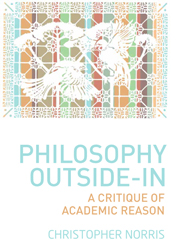Book contents
- Frontmatter
- Contents
- Dedication
- Introduction
- 1 How Not to Defeat Scepticism: Why Anti-realism Won't Do the Trick
- 2 Great Philosophy: Discovery, Invention and the Uses of Error
- 3 Under Which King, Bezonian? Experimental Philosophy versus Thought Experiment
- 4 Outside the Box: On the ‘Extended Mind’ Hypothesis
- 5 Inaesthetics and Transitory Ontology: The Case of Political Song
- 6 Speculative Realism: An Interim Report
- 7 Provoking Philosophy: Shakespeare, Johnson, Wittgenstein, Derrida
- Index
6 - Speculative Realism: An Interim Report
Published online by Cambridge University Press: 05 March 2014
- Frontmatter
- Contents
- Dedication
- Introduction
- 1 How Not to Defeat Scepticism: Why Anti-realism Won't Do the Trick
- 2 Great Philosophy: Discovery, Invention and the Uses of Error
- 3 Under Which King, Bezonian? Experimental Philosophy versus Thought Experiment
- 4 Outside the Box: On the ‘Extended Mind’ Hypothesis
- 5 Inaesthetics and Transitory Ontology: The Case of Political Song
- 6 Speculative Realism: An Interim Report
- 7 Provoking Philosophy: Shakespeare, Johnson, Wittgenstein, Derrida
- Index
Summary
I
Like a good many others I was greatly impressed when I first read Quentin Meillassoux's After Finitude – at any rate its opening section – and even more so to witness its extraordinary impact among the livelier sections of the continental philosophy community over the next few years. What the book clearly marked was a full-scale retreat (for which read ‘advance’) from the kinds of far-out anti-realist, constructivist or socio-linguistic-relativist position that had captured the high ground across large swathes of the post-1970 continentally influenced humanities, philosophy included. In its place there now emerged a hard-line objectivist realism which defined itself squarely against that whole theoretical-cultural mindset. Moreover it did so with primary reference to just those disputed zones, like epistemology and philosophy of science, where anti-realism had pressed its case with maximum vehemence and rhetorical if not argumentative force.
Hence the effect of high drama that Meillassoux achieved with now his famous opening passage concerning the ‘arche-fossil’ and its erstwhile habitat, the ‘ancestral realm’. He takes these to offer a standing refutation of the basic anti-realist idea that truth is coextensive with the scope and limits of attainable human knowledge, or that it cannot exceed the bounds of cognitive-linguistic representation.
- Type
- Chapter
- Information
- Philosophy Outside-InA Critique of Academic Reason, pp. 181 - 204Publisher: Edinburgh University PressPrint publication year: 2013



